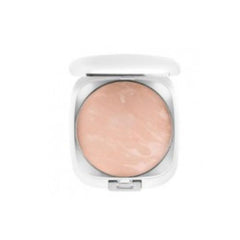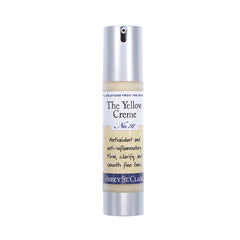5 Reasons To Choose A Mineral Sunscreen This Summer

What are the differences between mineral and chemical sunscreens? Why does it matter which type of sunscreen you use? Sun protection was never a “thing” until the last third of the 20th century, when the ozone layer, which prevents harmful UV rays from reaching earth, began to erode.
UV rays are harmful to your skin and prolonged exposure to them over time may increase your risk of developing skin cancer (melanoma). If melanoma is treated early, five-year survival rates are very high. However, if melanoma is undetected and untreated, it can spread beyond the skin to lymph nodes and even to organs. Once melanoma has spread to the organs (distant spread) the five-year survival rate drops to 35 percent.
You need to wear sunscreen if you’re going outside. Some sunscreens may do more harm than good, while others are beneficial for your skin. Here are just a handful of the benefits you’ll derive from opting for mineral sunscreens instead of chemical-based sunscreens.
How do mineral and chemical sunscreens differ?
A mineral sunscreen contains one or two active ingredients: titanium dioxide, zinc oxide, or a combination of the two. You might see other ingredients listed on the label that help emulsify and preserve the formula, but zinc and titanium are the minerals that sit on top of your skin and block UV rays from damaging the cells underneath. They act as tiny mirrors, reflecting the rays away from your body before they can reach your skin’s surface.
Chemical sunscreens include chemicals such as oxybenzone, avobenzone, homosalate, octocrylene, or a number of other substances that absorb damaging rays rather than blocking and reflecting them away from your skin. They actually convert the UV rays to heat, which then radiates back out of your skin. Unfortunately, your skin must absorb some sunscreen chemicals to do this effectively.
The jury is out on whether mineral sunscreens don’t absorb into your skin at all or whether nano-sized particles cause very minor absorption. But what we do know is that mineral-based sunscreens absorb significantly less than chemical sunscreens.
Many people deliberately choose chemical sunscreens because they absorb well and don’t leave that telltale white sheen on the skin that some zinc and titanium sunscreens do.
Once you get past the aesthetic advantage of chemical sunscreens—which has dwindled in recent years, as mineral sunscreen formulas have become less and less noticeable on the skin with better technology—the benefits end. We believe mineral sunscreens are the far better choice for most people in almost all situations unless you have an allergy to zinc or titanium.
1.Mineral sunscreens are much better for your skin.
“Wear sunscreen daily on your face, chest, and hands!”
You’ve probably heard this advice many times over. Everyone in the beauty industry seems to agree that skipping daily sun protection harms your skin.
However, applying chemical sunscreens to your face every day isn’t exactly pleasant. They can be greasy, heavy, and irritating to sensitive skin, and many people find that daily sunscreen use causes blocked pores and acne.
Additionally, you might find that chemical sunscreens can worsen conditions such as rosacea, persistent redness, and inflammation since they work by absorbing UV rays and turning them into heat. All that heat can make your sensitive skin unhappy!
The good news is that many people who can’t tolerate daily chemical sunscreen use have a much easier time with daily mineral sunblocks, as the minerals stay on top of the skin rather than sinking in.
Zinc and titanium sunblocks often have a slight whitish tint, so it can help to use a tinted formula such as a mineral foundation. That way, the opacity actually works in your favor, as it becomes part of your normal makeup routine.
2. Mineral sunscreens are better for the environment.
Thousands and thousands of tons of sunscreen get washed into the ocean every year from beachgoers sweating away their sun protection. National Geographic estimates that 14,000 tons of sunscreen containing 82,000 chemicals are added to the already struggling seas every year. The resulting coral reef damage is heartbreaking; experts say the Caribbean has lost 80% of its corals over the past 50 years.
Hawaii is one of a handful of tropical locations that have already banned several sunscreen ingredients in an effort to help preserve coral reefs. However, even if you never swim in the ocean, your chemical sunscreen still harms the environment every time it is washed down the drains in your home.
Haereticus Environmental Lab and the Environmental Working Group both recommend choosing mineral sunscreens instead of chemical products to help preserve the environment.
3. Minerals are natural full-spectrum blockers.
Have you ever read the label on a chemical sunscreen? It’s unlikely to contain just one chemical active ingredient; it probably has several. Since each of these chemicals can only block a specific spectrum of UV radiation, it requires a whole cocktail of them to achieve full-spectrum protection.
Contrast that with zinc, which is naturally full-spectrum and can reflect any range of UV light the sun projects to the earth. When you stick to minerals, there’s no need for a long list of unpronounceable ingredients!
4. You can go in the sun immediately, rather than having to wait.
Chemical sunscreens can take fifteen minutes or longer to fully absorb and begin to be effective. They don’t do much at all when you first apply them; they have to get into your cells before they can start converting UV radiation to heat energy. This means you’ll be waiting under the umbrella for a while every time you reapply instead of heading out for a swim or an invigorating session of beach volleyball. It also means that you’re largely unprotected for the first several minutes when you apply your daily sunscreen and hurry out the door.
Conversely, mineral sunscreens are just apply-and-go. Since they sit on top of your skin and aren’t meant to absorb, they’re effective from the moment you apply them.
5. Mineral sunscreens are generally recognized as a safer option for long-term health.
Studies deeply investigating the safety of sunscreen ingredients are lacking. However, current science suggests that chemical sunscreen ingredients are absorbed into the bloodstream and may disrupt hormones and other aspects of the endocrine system. (Interestingly, this is one reason they’re so harmful to coral reefs. They interfere with the reproductive cycles of the coral!)
This hormonal disruption is bad news for everyone, but especially for people who already struggle with hormonal disorders and cancers.
Despite the benefits of chemical sunscreens as touted by most dermatologists—protection from sun damage, skin cancer, and premature aging of the skin—there may be harmful effects occurring well below the skin’s surface.
Breastcancer.org, for instance, recommends that people with breast cancer avoid chemical sunscreens and opt for physical blockers such as wide-brimmed hats instead. Hormonal and endocrine damage may actually accelerate your body's aging process—which is the opposite of the intended effect.
Are mineral sunblocks any safer? They appear to be. Research indicates that zinc and titanium don’t penetrate into the skin and therefore absorb in much, much smaller quantities than chemical sunscreen agents.
It’s possible that future research will change the way we recommend sunscreen use. But for now, mineral sunblocks offer many benefits for your own health and for the environment.
Leave a comment
Comments will be approved before showing up.
Also in Abbey St Clare Blog

The Wheel is Turning. Abbey St. Clare has Closed.
Hello Friends,
The wheel is turning. Transitions are on the horizon. It is with regret that after almost twenty years, Abbey St. Clare is winding down as retirement and a relocation take place in the near future. We will continue taking orders through September 15.

Fix These 5 Hair-Washing Mistakes For Healthier Hair
Is your hair feeling brittle? Scalp dry? Locks not as lustrous as you want them to be? It’s possible you’re damaging your hair with five hair-washing mistakes.
If you follow these guidelines, you will see significant improvement in your hair and scalp health.

Pamper Your Skin and Elevate Your Mood With Essential Oils
Have you ever caught a whiff of cinnamon and felt a boost in your mood instantly? Do you feel calmer and more at ease when using lavender lotion before bed? If you said yes, it’s not just a figment of your imagination!
Ask anybody who uses essential oils regularly, and they’ll probably agree: these natural botanicals can have powerful, positive effects on your mood and overall wellness.



